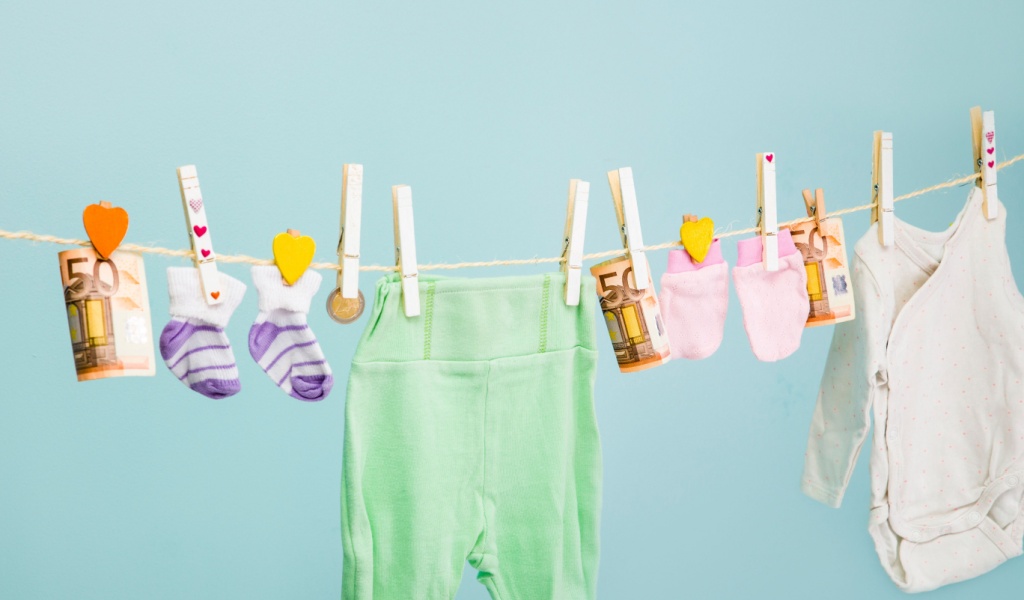All that comes to mind when we think of babies are cuddles, cooing, and diapers. But did you know that beyond the adorable chaos, raising a tiny human involves many unexpected costs? If you’re planning to bring a bundle of joy home soon, it’s best to be informed and prepared of all the costs involved so you can avoid financial problems later on. Let’s take a look at 15 expenses you may not have seen coming.

Prenatal, Delivery & Health Care Costs
The money train starts before your baby is even born. According to A+ FCU, prenatal care in the US alone can cost approximately $2,000! Vaginal deliveries range from $5,000 to $11,000; C-sections can cost anywhere from $7,500 to $14,500; and when you add postnatal care and pediatric visits, you’re in for thousands more.
Life Insurance & Estate Planning
Before having a baby, life insurance may seem like an afterthought. However, once they’re here, a single tragic incident becomes difficult even to imagine. It’s better to strengthen your policies and update your will or guardianship plans to safeguard your baby’s future.
Baby Gear & Nursery Setup
Cribs, mattresses, monitors, feeding chairs – all these “must-haves” can add up quickly. According to Wise Bread, the prices of baby equipment range from $250 to $1,000. And the initial setup (nursery + equipment) can range from $300–$1,800.
Food Delivery & Takeaway
Congratulations on identifying takeaway and microwave menus like never before. The initial few months of sleep deprivation will likely have you ordering in more than cooking. Unlike earlier, after having a baby, food delivery sneaks into your monthly bills far more frequently than anticipated.
Bottles, Formula & Nursing Supplies
New parents have to fork over thousands of dollars on accessories, pumps, and formula (if needed) – and most aren’t aware of these costs until they’re handing over the money at checkout. If your baby needs formula, you’re in for a significant ongoing expense – research claims that monthly costs can range from $40 to $300.
Upgrading to A Bigger House or Car
Need space for strollers, rockers, play pens, toys, and cribs? Many couples move to a bigger house, and some also upgrade to a bigger vehicle. They say that a bigger house and vehicle will be helpful in the future when they plan to have siblings for the baby.
Higher Utility Bills
As a result of running the humidifier, washing clothes frequently, and warming bottles, you may notice a significant increase in your utility bills, including water, gas, and electricity. This is a common (unwelcome) surprise for new parents!
Swaddles, Changing Tables & Add-ons
Infants and toddlers require a range of items, including swaddle sacks, changing tables, night lights, extra crib sheets, and other essentials, all of which come with their own price tags. While any one of them individually won’t break the bank, they can quickly add up.
Baby Breakage & Proofing
Little explorers break everything in the house. From phones to plants, there will be many things broken that need to be replaced. Take Charge America refers to this as “baby breakage” and claims that proofing and replacements are more expensive.

Skin‑Safe Detergent & Running Laundry
Due to spit-up, diaper blowouts, and frequent clothing changes, the use of detergent can be increased. And you can’t use regular detergent on baby clothes – it has to be skin-safe, allergen-free, and chemical-free. The Insider’s parents report doing six to seven loads every few days with more expensive, hypoallergenic detergents, which cost far more than the initial estimates.
Unexpected Medical Treatments & Specialist Visits
Even with insurance, expect to pay doctor copays, prescriptions, and likely specialist visits. Unexpected medical bills, testing, lactation consultants, ear-tube operations, etc., can easily go up to thousands of dollars.
Childcare Expenses (Daycare or Babysitters)
Babies are not born with nannies. A+ FCU cautions that full-time daycare can cost $8,000 annually, and babysitters can easily earn over $27,000 in their first year. Childcare is a considerable expense in the US. So much so that some new parents find it more practical to stay at home instead of paying for daycare, in which case, there is the unexpected loss of income to face.
Supplies for School & Multiple Fees
Once the child starts school, teachers ask for supplies, fundraising, and activity fees. A+FCU and Insider both highlight public school supply lists, snack fees, PTA fees, and more, which can quickly add up to $700 annually per child. And if you want your child to attend a private school, the fees will be sky-high!
Date Night Expenses
Having a baby doesn’t mean your life is over, but you’ll have to set aside a childcare fund alongside your entertainment budget if you ever want to have fun again! The cost of a babysitter, dinner, and transport all adds up fast. Generally, a three-hour babysitting session can cost between $60 and $100 or more.
Birthday Parties & Extracurricular Activities
Once your little one starts daycare or preschool, birthday invitations begin to follow. Birthday parties and school fees can amount to hundreds of dollars annually, and extracurricular activities are also costly.
Maternity Leave and Loss of Pay
The lack of an adequate maternity or paternity leave policy is a significant issue in the US. One parent (primarily the mother) works part-time or takes unpaid leave. Maternity leave frequently pays less, and doctor visits result in even more lost income.
Unforeseen Expenses Matter
- Medical & childcare expenses – Recurring and frequently undervalued.
- Utility bills and increased rent – More people mean higher bills.
- Life insurance & legal documents -Protection you would spend on anyway.
- Moving, baby equipment & nannies – For protection, peace, and family grounding.
- Laundry & food delivery – Due to sleep deprivation & exhaustion.
- Activities & surprises – Since they grow up fast.
Awareness Is Power
Having a baby is both magical and expensive. Even after budgeting for diapers, bottles, and nursery decor, these unexpected costs can strain your finances in startling ways.
The good news? Power comes from awareness. By setting up automated savings, renewing insurance, exploring second-hand gear, meal planning, and scheduling backup childcare, you can reduce the financial surprises. It can also help to maintain a flexible baby buffer fund. If everything goes well, you can save it.
With this blog, you’re better prepared than most new parents. The love you receive from your newborn is priceless, but now, at least, you won’t be surprised when the bills roll in!



